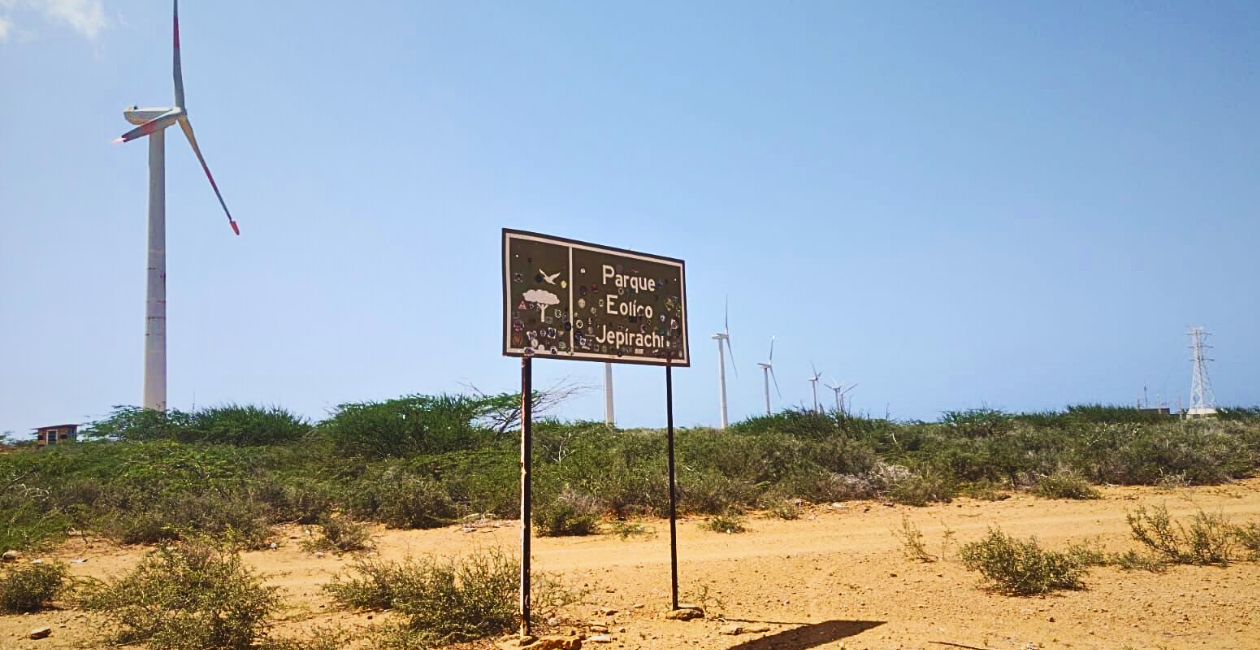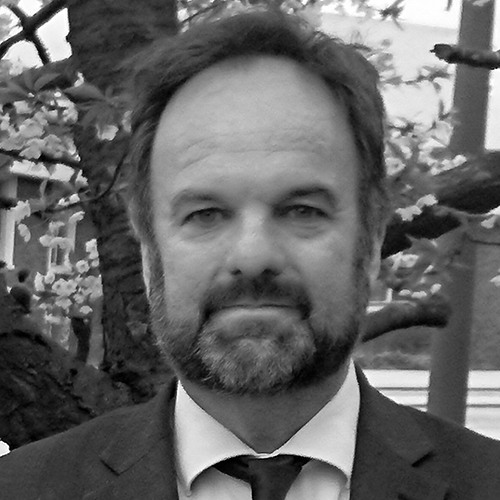Summary:
- Social resistance to renewable energy projects is becoming the greatest threat to achieving net-zero
- Two-year research project to quantify the operational and opportunity costs of conflict between companies delivering renewable energy projects and the workers, communities, indigenous groups, or other stakeholders affected by the project
- The research will address the urgent need to convey to the renewable energy industry the costs of “getting it wrong” versus the value of “getting it right”
- The research will cover different renewables activities: mining of transition minerals; renewables infrastructure and production rollout; grid improvements/expansion
- This research aims to be a useful tool for renewables companies, national governments, investors and the financial sector, and civil society groups to guide new renewables projects
Header image: A wind energy project in Colombia in the process of being closed down. Credit: CREER
Background
With less than six years to reach interim targets to achieve net-zero, we have an urgent and enormous task to transition to clean energy systems.
Social disruption and conflict is arising between companies and communities in response to insufficient and poorly planned renewable projects. These conflicts could quickly become the greatest threat to achieving net-zero in time.
Rapidly expanding renewable energy projects around the world are already causing significant distress to indigenous groups, communities, and workers around the world, for example in Colombia, Kenya, Indonesia, and beyond. In response, we are seeing a predictable and growing pattern of dissent against and disruption to renewables projects, slowing or halting their rollout.
Quantifying the costs of conflict
IHRB is conducting a two-year research project to quantify the operational and opportunity costs of conflict between affected groups and companies across a range of renewables technologies including:
- mining of transition minerals
- renewables infrastructure and production rollout
- grid improvements/expansion
Quantifying the costs of company-community conflict is not an exact science, nor is there one size that will fit all companies. But the attempt to quantify, even anecdotally, the financial value at stake for companies provides an additional means by which to convey the importance of early, ongoing, and meaningful stakeholder engagement to prevent conflicts and minimise any escalations.
Research aims and outcomes
There is an urgent need to convey to the renewable energy industry the costs of “getting it wrong”.
Through desk research, case analysis, expert interviews, and multi stakeholder dialogue, this project will:
-
evidence and demonstrate the operational and reputational costs to renewable energy companies of failing to secure or maintain their social licence (the buy-in of communities impacted by transitions) to operate
-
equip people involved in the rollout of wind, solar, green hydrogen, and other renewables technologies with a powerful tool to make the case for greater partnership with the local stakeholders that can directly impact the operational and opportunity costs of renewables projects.
If we learn from past mistakes and approach this transition differently, in partnership with those most at risk, there is an opportunity to deliver on the once-in-a-generation opportunity to use decarbonisation as a means to combat climate change and create a more equitable world.
Who is this research relevant to?
- Companies and industry groups across the green value chain that are seeking to establish the leadership of the renewables industry.
- National governments and their national transition plans as a key policy lever to shape auctions, permits, licensing, as well as enforcement and adjudication.
- Investors and the financial sector who can include the costs of conflict into investments and financing decision to avoid green investments becoming ‘stranded assets’. Carbon markets also need to factor human rights due diligence and conflict-related aspects to their ratings of carbon credits, where these findings can provide a useful benchmark.
- Civil society groups, who are already responding to the implications of wind and solar energy growth. This research will provide an additional tool to advocate for business to be done differently.
Project activities
Literature and Case Review: Mapping whether the renewables sector is listed as a key actor in shaping the global energy transition and local socio-ecological systems in existing industry, scientific and policy literature. Mapping recent and current cases of company-community conflict around transition minerals, various types of renewables production, and grid improvements to understand the nature and types of conflicts and operational impacts.
Quantitative Analysis: Developing a measure of equivalency to identify an overall figure (or series of figures) that convey the financial value at stake for renewables companies when they fail to meaningfully engage local affected groups and this leads to conflict, disruption, and delay.
Interviews: Stress test our initial findings; better assess the costs of conflict; and understand how companies are interpreting, account for and responding to conflict through a series of in-depth and confidential interviews with corporate, finance, legal, and sustainability professionals across a range of renewable energy companies and sub-sectors.
Convenings and multi-stakeholder dialogue: Draft findings will benefit from further stress testing in multi-stakeholder fora, whilst at the same time building buy-in for the research and a broader community of practice that can help implement and advocate the project’s final findings and recommendations.
This project would not be possible without the support and partnership of the Clifford Chance Foundation.






